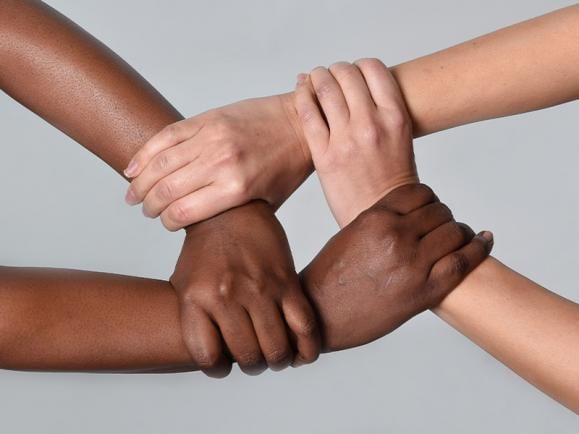
Talking about race can be messy, sensitive, and difficult. Children will be confronted with racism at a very young age, so despite our discomfort to talk about the subject, it is important to bring up in your household. There is not any one way to dive into the topic, but there are some good tips on how to get started. There are so many complexities with race that you might not know all the answers yourself. No matter your background or experiences, it is time to get the conversation started.
Get comfortable talking about race.
As a family it is important to talk about the subjects of race, racism, prejudice, and injustice. If as a parent you do not feel comfortable talking about these topics with another, then it is going to be impossible to bring it up to your young ones. There are age-appropriate ways to talk to any child or teen about implicit bias and structural racism. First, though, you must understand the topic yourself. Seek out literature that helps you understand the topics more. Make it an effort as a family to learn how to be better allies.
Use the concept of fairness.
Children and teens, particularly young ones, are very concerned about what is fair and what is not. Use this keen interest as a tool to teach your children about justice. Engage your children in identifying situations that are unfair for people of different races. For example, you can teach your child how it seems unfair that more Black children are not featured in picture books. When you start bringing these conversations up when your child is young, they will grow to become adults that recognize unfair patterns.
Empower your child.
Depending on your child’s age, the idea of racism might give them anxiety because they do not know how to help. Now more than ever, children have access to information of all kinds. They might not have the ability to make sense of it due to their maturity, so it is important to soothe their concerns. Encourage them to ask you questions. Empower your child to take action and share with them positive news stories. Look for anti-racist role models in your community and expose your kids to these role-models. Additionally, help your child donate or volunteer with a local organization. This will help them feel like they are making a real positive change.
Look inward.
It is important as a family to hold each other accountable. Have you noticed your child showing judgement towards a classmate unfairly? Talk to them about it rather than just punishing them. This helps your child learn to critically think about their actions, rather than just accepting things blindly as “rules”. Additionally, look to see how you have been acting. Share with your kids what you could have done better and why it was wrong. This will empower your child to identify actions in others that are impolite and hurtful.
Discourage stereotypes.
As children age, they start to develop their own identity and values. If you have not talked to your child about race, they might be quick to believe harmful stereotypes. It is important to speak up and address these thoughts. Start the conversation by saying, “We are not on the same page as this. What do you believe about this stereotype?” Keep the conversation open but be stern in saying you do not condone bias or stereotypes. Explain that stereotypes are oversimplifications. They are not to be joked about.
Study other cultures.
You and your kids should try to develop racial and cultural literacy by learning about others. Ignorance is not bliss when it comes to race, and to best respect other races we must learn about what they have gone through. Find resources that teach about the history and experiences of African Americans, Latinos, Asians, Native Americans, and more. When researching, ensure your child understands that every racial and ethnic group might have different values, beliefs, or behave in different ways. However, this diversity is something to celebrate. Teach them that the way your family does things is not the only way.
Let your child ask questions.
Children are very observant of the world around them. They will want to ask questions about why people look different from them, and as parents we usually quiet them quickly to avoid embarrassment. This unfortunately teaches children that it is a topic that is taboo or wrong to talk about. Parents should be aware of what their child is asking or noticing so they can respond appropriately. They may make questionable statements because they are genuinely curious, rather than being racist. Talk to your kids and encourage their questions, because it is your responsibility to teach them how to be respectful of other races.
Race is not always the easiest subject to talk about, but it should not be avoided in family situations. Raise your child to be aware of other races, what their struggles are, and how to be a good ally. You might not know all the answers and stumble on your journey together. But as a family, you can grow.

